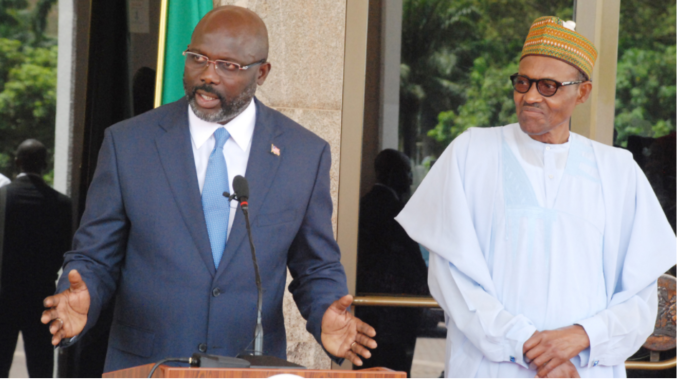
Liberia’s recently elected president, George Weah, on a visit to Nigeria, has requested, among other things, at least 6,000 teachers ‘to make up for the shortage of good teachers’ in his country’s education system. That Mr. Weah made this specific request implies his visionary appreciation of good education as the key to the development of human capital and, in turn, of his country. The Liberian leader noted perspicaciously that political change (such as Liberia experienced with his election) would be meaningless without development. And, as Nigeria’s own Minister of Education Adamu Adamu rightly observed recently, change begins with education.
Should Nigeria oblige Mr. Weah? In principle, yes it should. Besides that, under the Technical Aid Corps programme , Nigeria has over the years, sent thousands of qualified and competent professionals to Liberia and other requesting countries. Liberia also benefits from the Bilateral Teachers Exchange programme.
However, even as Nigeria should, as a moral obligation, continue to assist its needy neighbors, the question arises whether Nigeria can afford to send out its good teachers while it suffers a shortage at home. To act on the side of morality and political correctness is alright but only in so far as such gesture is not detrimental to a nation’s own interests.
Truth be told, Nigeria does not have, at all levels –primary, secondary, tertiary- of education, enough ‘good teachers’ to meet its needs. Good teachers are academically qualified, in their teaching subjects, in pedagogical studies generally, and they have acquired training in the skills to teach their subjects. And they are professionally certified to practice by the appropriated regulatory body. In short, they are skilled in harmonizing the minds and emotions of their students to make learning almost fun.
With about 300,000 of the 700,000 teachers in Nigerian schools not qualified to teach, according to the Teachers Registration Council of Nigeria (TRCN) ,obviously Nigeria should be requesting for qualified teachers from elsewhere. In Kano State, in Kaduna State, in Edo State, large numbers of teachers have been found abysmally incompetent both intellectually and in professional competence. Indeed, the Kaduna State government has had to sack over 2,000 academically deficient teachers.
The UNESCO Institute of Statistics noted that in 2010, the teacher-to-pupil ratio at Nigeria’s primary school level was 38:1, at the lower secondary level 31;1, and at the upper secondary level 38:1. These figures compare unfavorably with Brazil and Mexico where in the same period, the ratio at primary school level was 24:1, and at secondary school level 30:1. In the OECD countries of Europe, pupils –to-teacher ratio averaged 16:1 for primary schools and 14:1 in secondary schools.
It is said that every education system is as good as the quality of its teachers. The inadequate quantity and the quality of teachers in the Nigerian education system derives substantially from the relegation of teachers to the background in the Nigerian society according to a high TRCN official. Beside that ,too few and unqualified teachers can only assure poor quality education of the nation’s children, Adamu Adamu has posited that an easy way to destroy the education system of a nation [and the nation itself] is to accord little importance to teachers to the point that the students despise them.
It is therefore, doubtful that Nigeria can afford to send ‘good teachers’ to Liberia. But it is not impossible. The point must not be lost sight of that, despite its internal, largely self-inflicted problems, Nigeria is, for good reason, still held in some esteem by many countries, one they can run to in desperate times. And this relatively stronger and better endowed country is able to help, as indeed its leadership position requires.
This country turns out each year, a large number of products of colleges of education and university departments of education who can serve in Liberia. But first, they would need to be run through a short specially designed quality assurance course so that they can deliver on the good intentions of Nigeria on the one hand, and the expectations of Liberia on the other. Second, the terms and conditions of service should be clearly defined to volunteers in a Liberia much different from Nigeria. Third, Nigeria may be able to help with some of its good teachers, But Liberia must put in place conducive teaching and learning environment as well as resources to enable the pupils and students maximally benefit from their qualified teachers.
Nigeria’s assistance to other African countries have been so driven by pure altruism and no apparent goal of a ‘return-on-investment’. That is not realpolitik. If the country could afford to do this before, times are different now. Besides, the attitude to Nigeria of some past beneficiaries of Nigeria’s large-heartedness cause a re-think of why and how Nigeria must, in these tough times, make sacrifices for anyone’s sake. This country must henceforth insist on dividends from the sacrifice it makes.
END

Be the first to comment